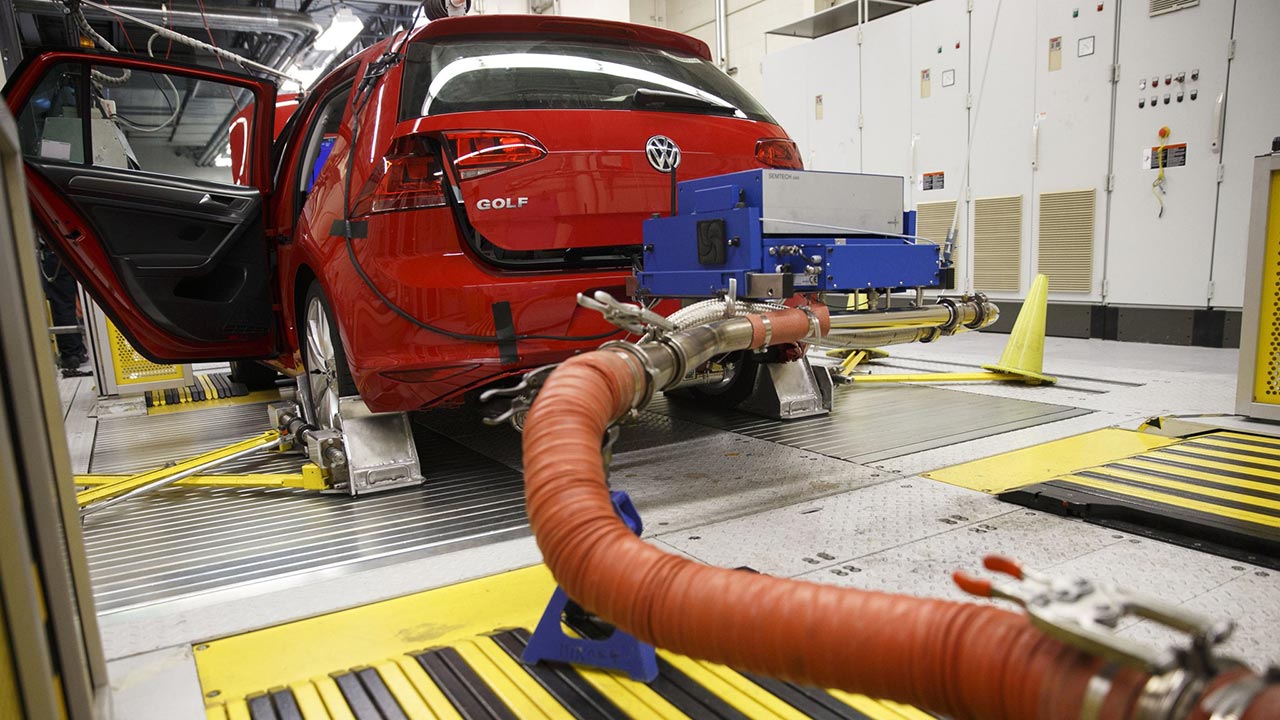According to a position paper from Volkswagen, the automaker is urging the European Commission to postpone the implementation of the Euro 7 emissions rules by approximately one year, until the autumn of 2026. Volkswagen claims that if the regulations are enforced in July 2025, it would have to cease production on various models. Furthermore, the company is requesting to delay the orders related to brake dust and tire wear particulates.
"Several years of lead time are needed," VW said in its position paper said. The company claims that a lack of suppliers for components that meet the regulations is part of the reason for wanting to delay the Euro 7 rules. Costs are another concern.
The EU recently reached an agreement with Germany that removed the planned combustion-engine ban in 2035. Instead, ICE-powered vehicles must run only on synthetic e-fuel by that time.
Although, Volkswagen brand boss Thomas Schäfer came out somewhat against e-fuel. He called the debate "unnecessary noise" and said that the era of the combustion engine was "over anyway." By 2030, the brand intends for 80 percent of annual sales to be EVs.
In March 2023, VW announced that it was building a battery factory in Spain. Cell production begins in 2026, and the site should make 40 giga-watt hours of packs each year initially. There's room to expand to 60 GWh annually.
In North America, VW Group is building a battery factory in St. Thomas, Ontario, Canada. The company is not yet detailing the site's manufacturing capacity. Production should begin in 2027.
In the US, VW Group is a $2 billion building a factory specifically for the new Scout Motors brand near Columbia, South Carolina. Construction begins in mid-2023, and production begins before the end of 2026. The plant has a planned yearly capacity of 200,000 vehicles.
VW also intends to become a battery supplier to other automakers. The company wants its PowerCo division to supply half of the firm's own packs and sell the rest to other corporations, like Ford.
Euro 7
The Euro 7 regulation is a proposal to make cars, vans, lorries and buses cleaner by reducing the amount of pollution they produce. The proposal aims to develop stricter emissions standards for all petrol and diesel vehicles. The Euro 7 regulation would significantly increase the emission durability requirements. Currently, Euro 6 cars have to comply with the emission requirements up to 100,000 km or 5 years. With the new rules, the Euro 7 emission limits would have to be met up to 200,000 km or 10 years. The Euro 7 rules will set out additional limits for particulate emissions generated by brakes, and rules for microplastics production due to tire wear. These rules will apply to all vehicles, including electric.
Source: Automotive News Europe

